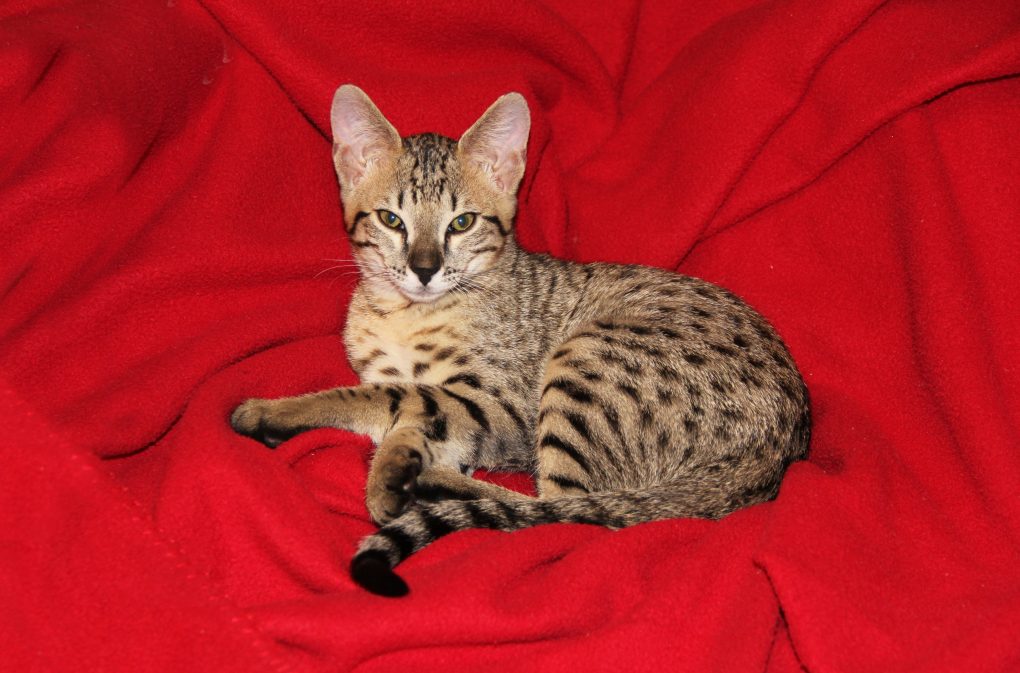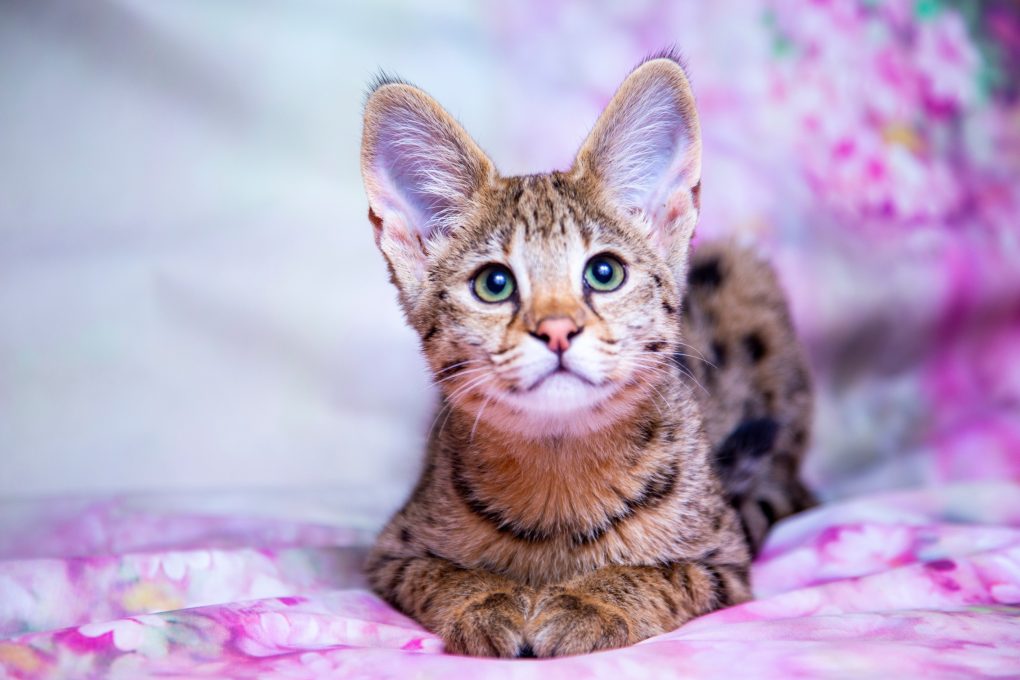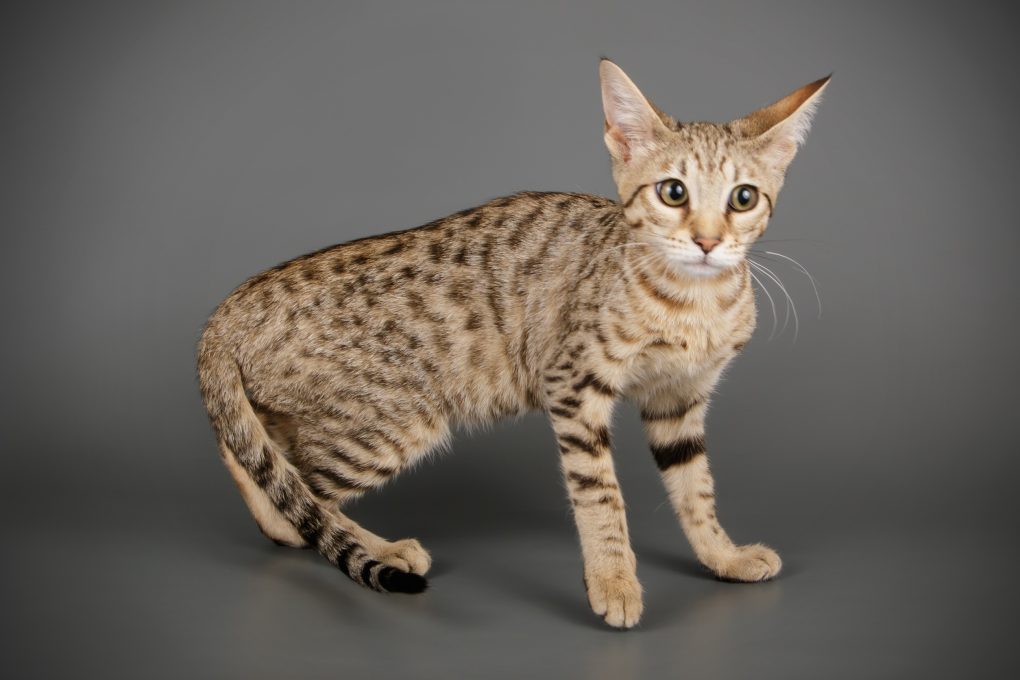Where Are Savannah Cats From: A Guide to Understanding the Origin of Savannah Cats
Savannah cats are a domestic cat breed developed in the United States in the 1980s by breeding an African serval with a domestic cat. The first Savannah cat was produced by a breeder named Judee Frank, who crossed a male serval with a Siamese cat to produce a hybrid offspring.
Domestic Savannah cats are mixed with the African serval. The breeding of Savannah cats continued throughout the 1980s and 1990s, with different domestic cat breeds being used to produce cats with different traits and characteristics. The International Cat Association (TICA) officially recognized the breed in 2001.


Although Savannah cats were developed in the US, they have become popular in many other countries worldwide, including Canada, the United Kingdom, and Australia. Today, Savannah cats are bred by many different breeders and can be found in homes and cat shows worldwide.
Table of Contents
Savannah Cats Are Bred From African Servals
As mentioned, Savannah cats are a hybrid created by breeding a domestic cat with an African serval. The African serval is a wild cat that is native to Africa and is known for its distinctive spotted coat, long legs, and large ears.
Breeding a domestic cat with an African serval creates a hybrid offspring with some physical characteristics and personality traits of both parent breeds. The percentage of serval DNA in Savannah cats can vary depending on the generation, with earlier generations typically having a higher percentage of serval DNA.
Savannah Cat Generation
The F1 to F4 designations for Savannah cats refer to the cat’s generation, which is determined by how many generations removed the cat is from its serval ancestor. The higher the generation number, the more domestic cat DNA the cat has. Here’s what each generation means:
- F1 Savannah: This is the first generation of Savannah cats and has a serval parent and a domestic cat parent. F1 Savannahs typically have a higher percentage of serval DNA than later generations, making them more prominent and more exotic-looking than other Savannah cats.
- F2 Savannah: This is the second generation of Savannah cats and has several grandparents and a domestic cat parent. F2 Savannahs have a lower percentage of serval DNA than F1 Savannahs, but they can still have some of their serval ancestors’ distinctive physical characteristics and personality traits.


- F3 Savannah: This is the third generation of Savannah cats and has serval great-grandparents and a domestic cat parent. F3 Savannahs have an even lower percentage of serval DNA than F2 Savannahs, but they can still have some of the physical and behavioral traits of the serval.
- F4 Savannah: This is the fourth generation of Savannah cats and has a serval great-great-grandparent and a domestic cat parent. F4 Savannahs have even less serval DNA than F3 Savannahs, and they are typically considered tamer and easier to care for than earlier generations.
It’s important to note that some states and countries have laws and regulations around owning Savannah cats for particular generations, so it’s essential to research the laws in your area before getting a Savannah cat.
Savannah Cat Characteristics
Physical Features
Savannah cats are one of the giant domestic cat breeds, with males weighing up to 25 pounds and females weighing at least 12 pounds. Early-generation Savannah cats can be even more significant. They have huge, upright ears, one of their most distinctive features. The ears are high on the head, often more prominent and more pointed than other domestic cats.
This breed can have a variety of coat patterns and colors, including spotted, striped, and solid. Their coat is short and soft, and they may have a small hood of longer hair on their necks.
They have long, lean bodies with long legs and a muscular build and are often described as looking like small wildcats. In addition, Savannah cats have triangular heads with a prominent brow ridge and a long, slender neck, and their eyes are large and often have an exotic almond shape.
Temperament
Savannah cats are docile, affectionate, and social animals that enjoy the company of humans and other pets. They are very active and playful, making them excellent companions for people who want a cat that is happy and content to play for hours on end. They have playful personalities and love to play fetch, run around, and catch things with their owners.
Savannah cats also enjoy cat toys and catnip, and they will quickly become attached to their human companions if given a chance. Despite their playful nature, Savannah cats can become aggressive if they feel threatened or are not appropriately treated. They should not be mixed with other felines or dogs as they may become territorial or aggressive.
Abilities
Savannah cats have great intelligence, athleticism, and energy. Here are some of the abilities and characteristics that are typical of the breed:


- Agility: Savannah cats are excellent jumpers and climbers, and they are known for their athleticism and agility. They can jump up to eight feet high and love climbing and exploring. Their powerful hind legs and flexible spine allow them to jump higher than other domestic cats.
- Intelligence: Savannah cats are brilliant and curious and need plenty of mental stimulation to stay happy and healthy. They can learn tricks, play fetch, and even be trained to walk on a leash.
- Energy: Savannah cats are high-energy and need plenty of exercise and playtime to stay happy and healthy. They love to run, play, and explore and need plenty of space.
- Hunting instincts: Because Savannah cats have some wildcat DNA, they may have a strong prey drive and be natural hunters. They may enjoy playing with toys that simulate prey and try to catch and bring in small animals like mice or birds.
- Affection: Savannah cats are very affectionate with their owners and may follow them around like a dog. They are loyal and can form strong bonds with their human family members.
